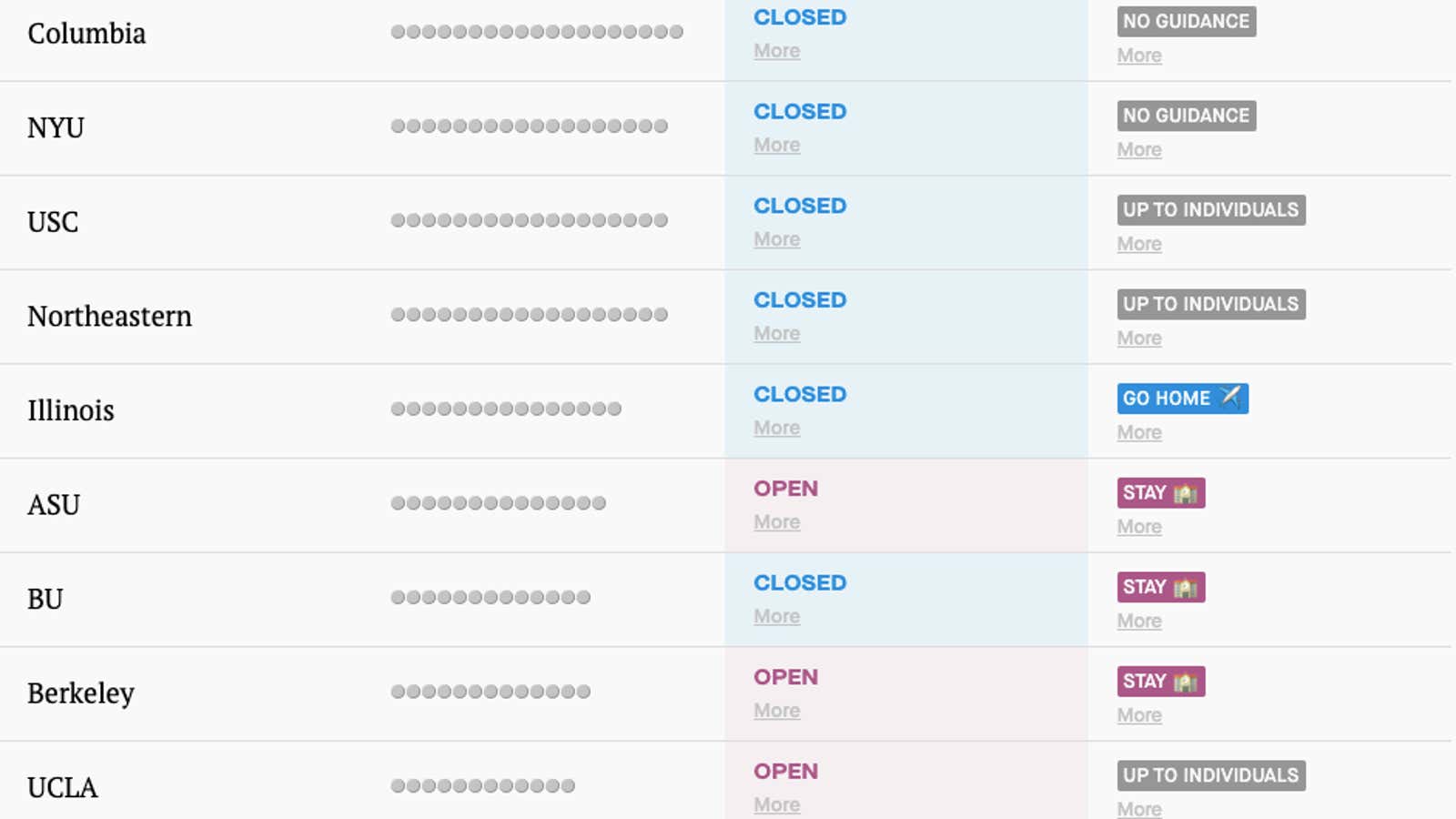As national and local governments announced emergency measures to fight Covid-19, universities scrambled to move classes online and clear out the dorms to limit the spread of the virus. In the process, international students, have been largely left on their own to chart a course forward.
The US is home to about 1.1 million international students. They make up about 5.5% of the total college student population. Typically, they pay out-of-state tuition to US public universities. It’s a a significant portion of these schools’ revenue. Universities have already offered housing refunds and laid off staff.
All of the schools with the largest international-student populations have moved their classes online, according to a Quartz analysis of the 36 universities that enroll a third of international students in the US. As of March 23, 72% of the universities told students to leave campus housing. The others left the choice to students. All universities say that they will help students who cannot return home stay on campus or find alternative housing.
Approaches have varied widely. The Philladelphia-based University of Pennsylvania asked all students to leave “by 8 pm on Sunday, March 15.” Three hundred miles away, in Pittsburgh, Carnegie Mellon didn’t force anyone to leave campus. Its president urged students to find housing off-campus to accommodate those who cannot move out. Most campuses in the University of California system did not evacuate students. However, UC San Diego asked students to leave by March 29.
The move-out instructions were given with a three-day notice at Penn, and a five-day one at Harvard. Exceptions can be made for special cases, most of these announcements say, but the criteria for exceptions vary. The building you live in and even the date students submitted their request are factors to some schools. Duke University, among others, offers emergency financial aid to help students book travel.
What about going back home?
Theoretically, students can take online classes anywhere in the world, but for international students who have to weigh between staying in temporary campus housing with limited services and going back to home country, the decision isn’t an easy one. Most universities say, it’s a personal choice.
Out of the 36 universities Quartz analyzed, 61% provided some guidance to whether students should go home. The rest didn’t offer much guidance. Some advise students to avoid travel, while others encourage leaving the US.
There is concern about the safety of traveling home and the feasibility of coming back once in-person classes resume. International travel during this time exposes extra risks, especially for those whose home countries are heavily affected by the epidemic. Nine out of the schools with international-student guidance cited “travel restrictions”, “travel limitations”, or “travel bans,” in reminding students of the risks of leaving the US. Five asked students to consider what’s the best for their “health” and “safety”.
There are also technological barriers. Some universities have warned international students that attending classes online could be difficult if they live in a far-flung time zone, or a place with poor internet connectivity. Boston University told students that classes will remain on Eastern Time so “students returning to their home country will need to take this into account.”
Many universities have adopted the video conferencing software Zoom for online teaching. Yet, Zoom isn’t accessible in 21 countries.
International students also face the risk of losing their visa or missing the window to apply for post-graduation employment if they leave the country for too long. US Immigration and Customs Enforcement has relaxed some rules to allow students to maintain their student visa abroad as long as they take classes online. Among the universities Quartz analyzed, four cited “immigration” as something for students to consider when making decisions.
Correction: An earlier version of this item listed listed Arizona State’s international-student policy as University of Arizona.
